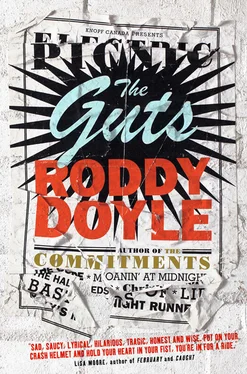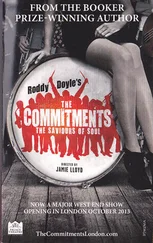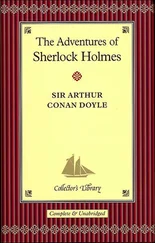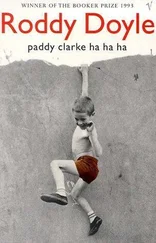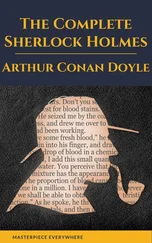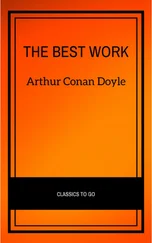— No.
— It’s impossible, is it?
— No.
— So it’s possible then. She’s a Yank.
— Oh.
— So do I apologise?
— You did already.
— Again.
— Why should you?
— For hangin’ up on her.
— No.
— Sure?
— Yes.
— There’s Noeleen as well.
— Ah, you didn’t hit Noeleen?
— No, said Jimmy. — No, I didn’t — relax. But she was talkin’ a bit at the do. Things aren’t goin’ too well, and we can’t really afford to be leakin’ clients.
— At his age, I’m sure he’s leaking.
Jimmy laughed.
— That’s very good.
— Oh, thank you.
— So anyway. Do I apologise again — more?
— No.
— How come?
— See what happens.
— Fine. Grand.
— Should we be worried, Jimmy?
— What about?
— Business, she said. — Your job.
He felt it; he knew. This was what he’d been wanting.
— Probably, he said. — I’m not sure. Maybe.
She sighed. So did he.
— On top of everything else, she said.
— Yep, he said. — But I think we’re okay.
— I’m sure it’s fine.
— Yeah.

A note this time. He held it. As long as he could.
The dog downstairs howled.
— You’re upsetting Cindy!
Grand.
— Ned.
— Ah.
— It’s Jimmy.
— Ah.
— It’s a few days early, I know, said Jimmy. — But Happy New Year, Ned.
Nothing came back from Ned. The beardy bollix.
— Listen, Ned, said Jimmy. — I think I owe you another apology. No, look it, I know I do. So, sorry. Yeh there, Ned?
— Yes, said Ned. — I’m here.
— No excuses, said Jimmy. — I’m sorry.
— Okay.
— Thanks. You still there, Ned?
— I’m here, said Ned.
Jimmy heard one of those theatrical sighs — the only type the prick at the other end was capable of. Then a different, chirpier prick spoke.
— Thanks for phoning, Jimmy.
— No, I had to. Listen, we’ll meet. Go through stuff. A few gigs in the spring.
— Sounds good.
— Germany.
— Great.
— Denmark.
— Great.
— Norway, said Jimmy. — But anyway, I’ll leave yeh. I just wanted to —
— No, said Ned. — Thanks for phoning.
— No, you’re grand, said Jimmy. — Always a pleasure. Anyway, so — you’re a lucky man.
— I know.
— I’m glad yeh realise that, said Jimmy, and he laughed. — Anyway. Next time, give her one for me.
— Bye.
— Good luck, Ned.
Fuck off, Ned .
— The Pope? said Noeleen.
He’d had the idea that morning, listening to the news on the way in.
— Yeah, said Jimmy.
He grinned; he actually laughed — just a burst.
— Tell me again, said Noeleen.
She did her businesswoman thing, put one foot up on her chair.
— Right, said Jimmy. — In 2012 — the day after tomorrow. There’s a thing — it’s called the Eucharistic Congress. Here in Dublin. And it’s the first time since 1932.
— And?
— It was huge back then.
— But not this time.
— Wait, said Jimmy. — Just wait. If they were havin’ it tomorrow, I’d agree. But it’s later in the year an’ this is the Catholic Church, remember. They’ll get a crowd.
— It won’t be Oxegen, Jimmy.
Her foot was still up on the chair.
— No, said Jimmy. — It’ll be bigger.
— How —?
— Just listen, Noeleen, for fuck sake.
He was grinning.
Her foot came down off the chair — the oul’ muscles weren’t what they used to be. But she was still listening.
— They’re invitin’ the fuckin’ Pope, he said. — It was on the news this mornin’. Remember the last time?
— Not really, she said.
That was right; she was younger than him. He hated that — he fuckin’ hated that.
— It was mad, he said. — The whole country shut down. The year after there were tons of babies called John Paul.
— What’s the current pope called?
— Don’t know, said Jimmy. — And I know what yeh mean. The times are different. Benedict — that’s it. But you’re right. But so am I.
— Benedict the what?
— Haven’t a clue, he said. — There’s probably about three people in the country that know or give a shite. But —
He was loving this.
— It’s still not the point.
— Go on, said Noeleen.
He had her by the entrepreneurial curlies.
— So, he said. — There’s big religion rollin’ towards us.
— It’s not rock ’n’ roll.
— Everythin’s rock ’n’ roll.
He’d no idea what that meant.
— It’ll all be back to 1932. People will be cryin’ for it, rememberin’ their parents and grannies talkin’ about it.
— Faith of Our Fathers.
— Exactly, said Jimmy. — All that shite.
— It’s been done.
— The CD, I know. And it proves my point. It was only a few years back, wasn’t it? A CD full of hymns outsold every legitimate album released that year. Bang in the middle of all the child abuse inquiries. And people bought it anyway, even though they hated the Catholic Church.
— Nostalgia.
— It was deeper than that, but yeah.
He loved that — it was deeper than that. He was a philosopher, a theologian. He’d ride the Sisters of Mercy, every fuckin’ one of them, to sell a record.
— So, said Noeleen.
— So, said Jimmy. — The songs of 1932.
— More hymns?
— Hymns an’ everythin’, he said. — Every song we can find that was recorded in 1932 — in Ireland. We’ll root through them all and come up with an album’s worth.
— Are you sure about this, Jimbo?
— I am, yeah, he said. — Look it. It’s 1932. If it was America, it’d be speakeasies and the Great Depression. The archives — for fuck sake, Noeleen. Jazz, country, prison songs, gospel, the blues. Some o’ the coolest stuff that was ever recorded. Alan Lomax an’ his da. And your man, the other archive fella — Harry Smith. There’s box sets. iTunes sells them. We’ll do the same. We could trace the roots of punk to some whistlin’ bogger in 1932.
— How would you go about it?
— No idea, said Jimmy. — Not yet. I only thought of it this mornin’.
The office was filling again, as much as it ever did. Lunch was over.
— It’s possible, he said. — Listen to this. It’s possible we could find someone still alive who recorded a song in 1932. For the radio. Even just into a tape recorder or on acetate.
Acetate. He loved saying that.
— RTE will never give us their archive, said Noeleen.
— Fuck RTE, said Jimmy. — We’ll go after tapes. Parish stuff, family stuff. Lost records. Someone who sang — some teenager back then is ninety-four or five now.
They both smiled; they grinned.
— It’s so cool, said Noeleen.
— It fuckin’ is, he agreed. — There’ll be no blacks, fair enough. But even then, you’d never know. But anyway, it could nearly be as cool as an American archive. Why wouldn’t it be? I’ve a feelin’ already. I think —
The twit was beside them, watching his bosses. He’d never really seen them like this before, the way they’d been back before they’d solidified.
— What? said Noeleen. — What do you think?
— I think —, said Jimmy.
Ocean was there now too. Looking on.
— I think, he said again, — we might find somethin’ we were never supposed to find.
— What?
— Somethin’ hidden, said Jimmy. — Music that never made it onto the radio. Our own blues, say. Suppressed — deliberately forgotten. Cos it didn’t tally with De Valera’s vision for Ireland.
Читать дальше
